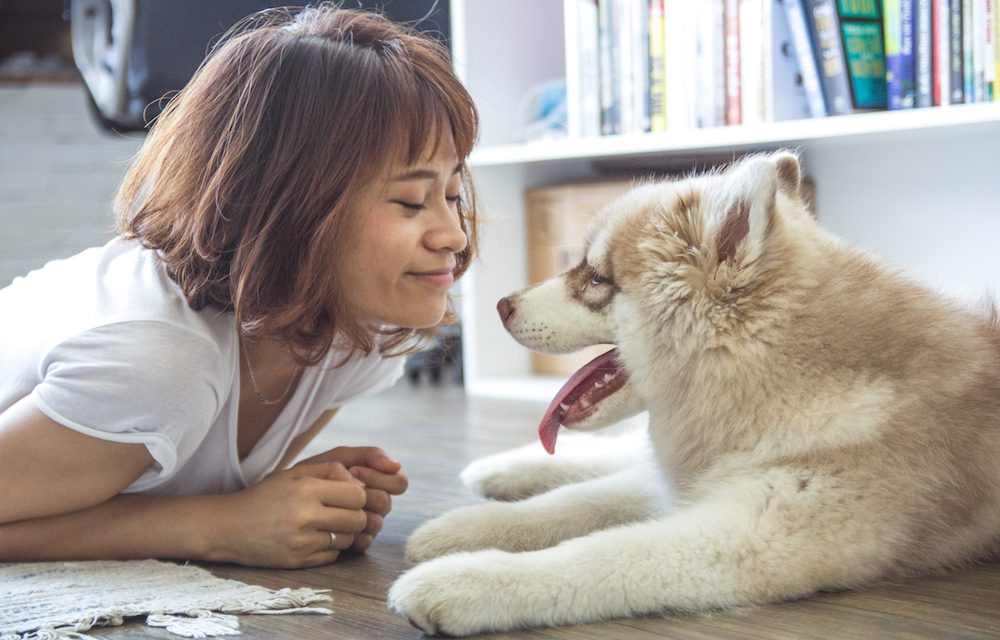I’m delighted to welcome guest blogger Deepak Sharma, who is the Founder of www.indiapups.com. I hope there will be more of these great articles to come from him.
__________________________________________________________
Our dogs are family to us. And as we live with them, we understand that they will always remain babies – our babies. But what happens when you have a child of your own? Yes, there is loads of fun ahead, but only if you deal with the initial introduction phase between your dog and your baby correctly.
And this can be challenging. Adding a child to your family confuses your dog initially, as the home structure is suddenly changed. Humans can adapt quickly yet bringing a new baby home can disturb your dog. After all, it used to be the sole center of attention.
But there are some steps that you can (and should) take, prior to bringing your child home, that will help the dog adjust more rapidly.
Smells and Sounds Help Introduce Baby and Dog
There are certain smells associated with babies. From powder to oils, and diapers to formula, babies come with smells. You can bring these smells into your home before the baby is born. Letting the dog smell the new items will allow it to not be overwhelmed with smells when the baby is introduced. This allows a gentle and gradual introduction to the new person that is soon coming.
Playback recordings of sounds that babies make.
A simple and effective method. Babies will coo, cry, giggle and grunt! These new sounds mixed with new smells & a new person can cause a dog to become anxious from over stimuli. If you subject your dog to these sounds prior to baby’s arrival, it will desensitize the dog to these sounds or at the least make him more familiar with what is coming.
Bring home a blanket from the hospital that smells like the new baby.
Dogs work through sights and sounds, and presumably, this blanket will have your child’s scent. This method is more effective than the above-mentioned step of letting your dog smell the powders and oils. Getting a real blanket that has been in your child’s presence will be an intimate introduction to the new member. This will help disrupt the disturbance your dog may feel.
Go Through the Motions of Baby Meeting Dog
Your routine is going to change when the baby comes home. Practice going through the motions of what that might be. This can be getting up in the middle of the night and walking into baby’s room and sitting for a few minutes. Or when you wake up in the morning go into the baby’s room, pause for a bit, then proceed to take the dog outdoors (as per your routine). It might feel silly going through these motions and the dog might look at you confused as well! But, once you bring baby home the dog will automatically understand.
So hopefully you took the above steps and now your baby is in the house. Happy times ahead! But, there are still some things left to do.
Be cautious when you first arrive home with the baby.
Some dogs can become jealous or act out due to the over stimulation of their senses. Other dogs may warm up to the baby quickly and even become protective. Whatever it is, never leave baby and dog alone without supervision. Our lovely dog is still an animal used to acting on instincts and your baby is very fragile. So, supervision is always a must. You might also want to have a secure area for your dog to take a time out. Keep its blanket and favorite toys there, along with a water bowl.
Remember to also spend time with the dog minus the baby. This helps reassure your pet it is not being replaced.
The biggest mistake new parents make is rushing things.
If your dog is apprehensive about the introduction don’t push it on them. Nature will take its course and your dog will soon realize the baby is an additional “pack” member.
You must be alert as well as relaxed – this is a difficult role to play especially when you are already tired. Your mood will matter a lot in the early period of getting to know one another. If you’re fearful and anxious your dog can sense that. Just be warm, loving and trusting.
At the same time, be aware of your dog’s reactions to meeting the baby. Is it showing signs of aggression (growling, showing its teeth)? Immediately diffuse the situation, without tensing the dog further. Take it away gently. Is your dog showing signs of depression (less active, quieter, lies in a corner)? Show it more love and spend some time playing with it.
The best news is that babies grow fast. And dogs have a natural protective instinct towards kids. If they don’t hit it off early, make the pace gradual. And soon enough, they’ll be best buddies for life.
For more information please visit www.indiapups.com.

















